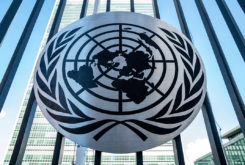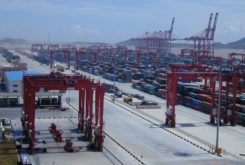A few weeks after a micro-finance legal framework came into force, Sao Tome and Principe is about to update its national payment system and impose new rules on the banking sector. It will give new powers to the country´s central bank.
As of November 6, payment services or the operation of a system operator will be subject to the authorisation granted by an act of the Central Bank of São Tomé and Príncipe (BCSTP), according to the new National Payment System Regulation (law 17/2018). This was made available to CL Brief by Legis-Palop+TL legal database.
To obtain such authorisation, an applicant may be required to maintain own funds at the levels specified by the BCSTP. This will be determined by the type of services provided, the average amount or aggregate of payments and other factors the BCSTP considers relevant.
In the management of payment instruments, the BCSTP may replace the granting of authorisation by simple registration where the operation and management of a particular category of payment instruments does not involve specific risks to the market: or where the submission to the authorisation procedure may affect competitiveness.
The law will apply to any payment service or system operated, totally or partially, in the country.
Banks that already provide payment services under a license granted by the BCSTP are exempted from the obligation to obtain such authorisation. But they must comply with the operational requirements and reporting and disclosure requirements established by the BCSTP. They shall also be subject to the same rules and requirements supervisory bodies applicable to natural and legal persons authorised under this Law. Banks that already act as system operators also need to obtain authorisation.
An authorisation granted under this Act may be subject to the payment of fees or other costs as determined by BCSTP.
In addition to authorisation, Law No. 17/2018 further provides that the BCSTP may establish a licensing obligation, and establish the respective terms, to payment service providers and operators.
Violation of the provisions of Law no. 17/2018 will be punished with a fine of between 65,000.00 Dobras (2,600 Euros) and 13,000,000.00 Dobras (528,400 Euros) or between Dbs 13,000.00 Dobras (500 Euros) and 2,000. 000,00 Dobras (81,300 Euros), depending on whether they are legal or natural persons.
Already into force is the new Micro-Finance Legal Framework (Law 16/2018). This applies to the provision of financial services essentially in small and medium-size operations for the low-income population, or to those who operate outside the traditional financial sector. These services include micro-credit, micro-insurance and micro-savings.
According to the document made available to CL Brief by Legis-Palop+TL legal database, as from 3 October, microfinance activity is allowed, as are microfinance institutions (MFIs), such as savings and credit, co-operatives, micro-insurance companies, micro-banks and micro-credit financial corporations.
These institutions need prior authorisation from the Central Bank of São Tomé and Príncipe (BCSTP). It takes into account legality, timeliness and convenience and sets the deposit of the application fee, calculated on a percentage of the capital stock, with the certificate attached to the application for authorisation.
The following entities may also carry out micro-finance, as long as they meet the requirements of this sector, as defined by regulations of the BCSTP — Non-Governmental Organisations (NGOs), Associations or Foundations of relevant social public interest, legally constituted and duly authorised; they must be limited to granting microcredits and not accept deposits or provide savings and insurance services.
In providing microfinance services, the following entities may also qualify: self-managed banks, state entities and agencies such as Companies and Local Authorities, under conditions to be defined by special regulations of the BCSTP. In both cases, they will be charged an administrative fee, in accordance with the regulations to be issued by the central bank.
Banking and financial institutions may also engage in micro-credit and micro-business activities, within the existing laws.



